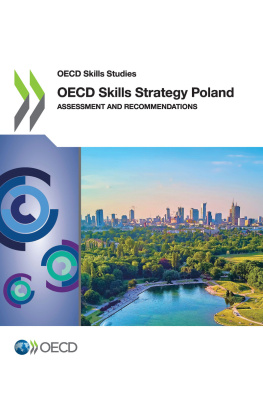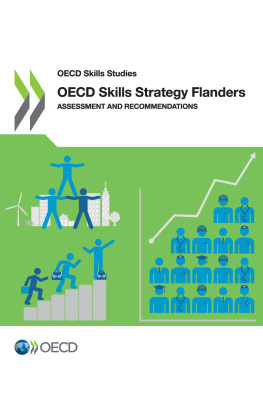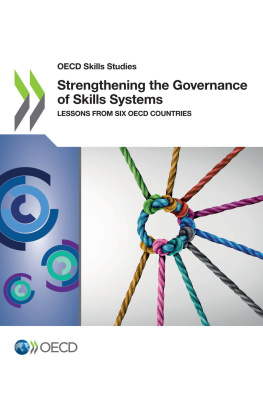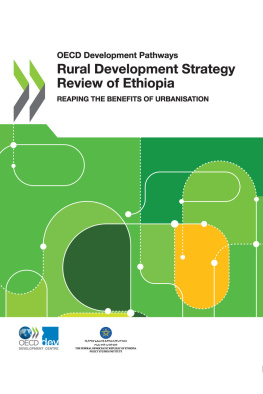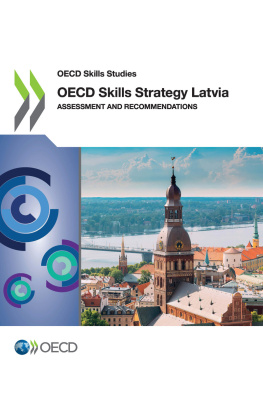OECD - OECD Skills Strategy Poland
Here you can read online OECD - OECD Skills Strategy Poland full text of the book (entire story) in english for free. Download pdf and epub, get meaning, cover and reviews about this ebook. year: 2019, publisher: OECD Publishing, genre: Politics. Description of the work, (preface) as well as reviews are available. Best literature library LitArk.com created for fans of good reading and offers a wide selection of genres:
Romance novel
Science fiction
Adventure
Detective
Science
History
Home and family
Prose
Art
Politics
Computer
Non-fiction
Religion
Business
Children
Humor
Choose a favorite category and find really read worthwhile books. Enjoy immersion in the world of imagination, feel the emotions of the characters or learn something new for yourself, make an fascinating discovery.
OECD Skills Strategy Poland: summary, description and annotation
We offer to read an annotation, description, summary or preface (depends on what the author of the book "OECD Skills Strategy Poland" wrote himself). If you haven't found the necessary information about the book — write in the comments, we will try to find it.
OECD: author's other books
Who wrote OECD Skills Strategy Poland? Find out the surname, the name of the author of the book and a list of all author's works by series.
OECD Skills Strategy Poland — read online for free the complete book (whole text) full work
Below is the text of the book, divided by pages. System saving the place of the last page read, allows you to conveniently read the book "OECD Skills Strategy Poland" online for free, without having to search again every time where you left off. Put a bookmark, and you can go to the page where you finished reading at any time.
Font size:
Interval:
Bookmark:
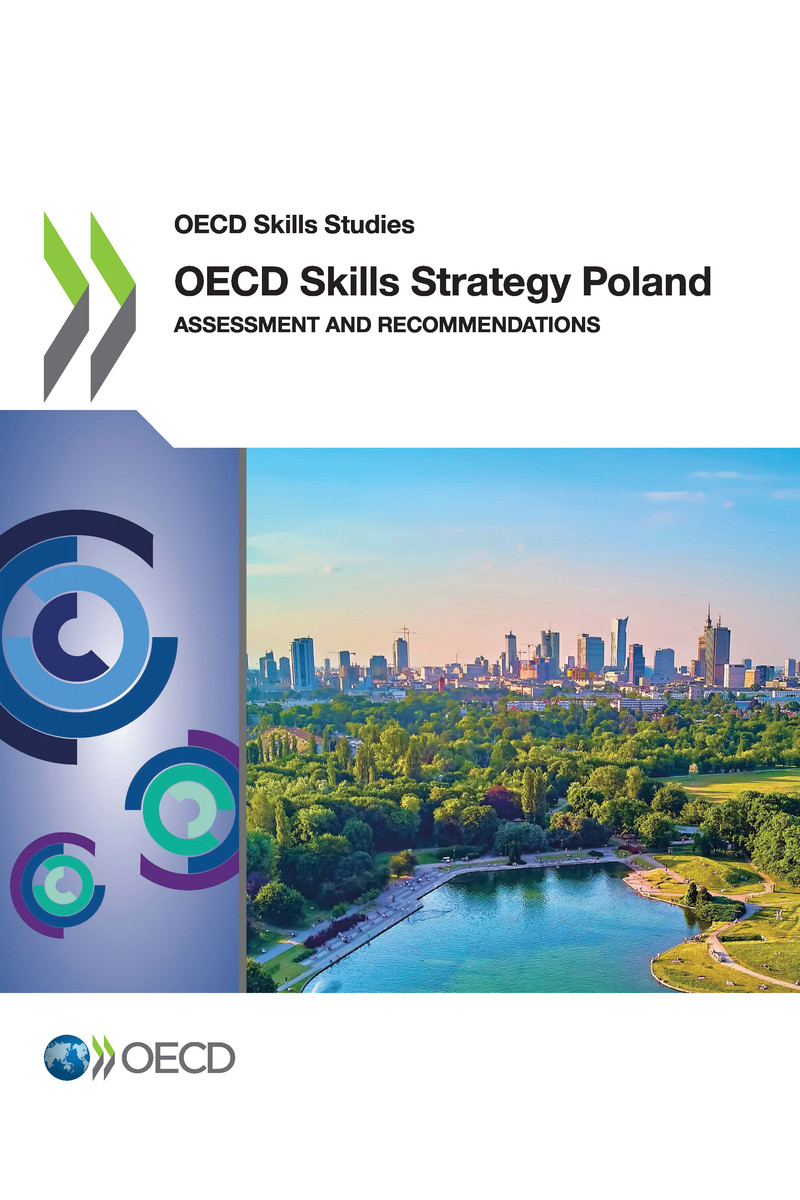
OECD (2019), OECD Skills Strategy Poland: Assessment and Recommendations , OECD Skills Studies, OECD Publishing, Paris, https://doi.org/10.1787/b377fbcc-en .
The information in this document with reference to Cyprus relates to the southern part of the Island. There is no single authority representing both Turkish and Greek Cypriot people on the Island. Turkey recognises the Turkish Republic of Northern Cyprus (TRNC). Until a lasting and equitable solution is found within the context of the United Nations, Turkey shall preserve its position concerning the Cyprus issue.
The Republic of Cyprus is recognised by all members of the United Nations with the exception of Turkey. The information in this document relates to the area under the effective control of the Government of the Republic of Cyprus.
Developing and using peoples skills effectively is crucial for Polands economic prosperity and social cohesion.
Globalisation, digitalisation and demographic change are combining to increase and transform the skills needed to thrive in Polish workplaces and society. People will need a stronger and more well-rounded set of skills, including cognitive, social and emotional, and job-specific skills, to flourish in life both in and out of work. Poland will also need to make better use of peoples skills in the labour market and in individual workplaces.
Poland has achieved relatively strong skills performance in various areas. In terms of developing peoples skills, Polands youth perform relatively well in the school years, and an increasing number complete tertiary education. In terms of using peoples skills, the unemployment rate in Poland is at record low levels, and labour market participation has grown for most groups.
However, Poland faces several complex skills challenges. Skills imbalances are high, and some graduates enter the labour market without a strong and well-rounded set of skills. Many adults have low levels of skills, yet most adults and enterprises in Poland are not engaged in education and training. Polish enterprises are not utilising the full potential of workers skills to support productivity and innovation.
In recent years, Poland has enacted wide-ranging skills policy reforms spanning all levels of education and training, as well as many areas of labour market policy. Their successful implementation will require strong stakeholder engagement and careful impact monitoring.
Poland has also developed an Integrated Skills Strategy to set the countrys priorities for skills development and activation. To support this process, the OECD has conducted a Skills Strategy project with Poland. This has involved detailed analysis and widespread engagement with stakeholders, leading to several tailored recommendations outlined in this report.
The OECD stands ready to support Poland as it seeks to implement effective skills policies and continue its transition to a knowledge-based economy and society.
This publication takes into account data from the 2015 Programme for International Student Assessment (PISA).
This report is part of a series of country projects within the OECD programme of work on Building Effective National Skills Strategies.
The OECD team wishes to thank current Minister for National Education, Dariusz Piontkowski, and former Minister for National Education Anna Zalewska for their commitment to this project. We are also grateful to Secretary of State for National Education, Marzena Machaek, for her ongoing support during this project.
The OECD is grateful to the Poland National Project Team for its invaluable guidance and input throughout the project, and its help convening and organising the stakeholder workshops. We are particularly grateful to the National Project Leader, Maciej Lasota from the Ministry of National Education, for his strong leadership and co-ordination of the National Project Team, which included, in alphabetical order: Aleksandra Jackiewicz (Ministry of National Education), Marcin ata (Ministry of Entrepreneurship and Technology), Beata Lewczuk (Ministry of Investment and Economic Development), Agnieska Majcher-Teleon (Ministry of Family, Labour and Social Policy), Katarzyna wiader (Ministry of Science and Higher Education), Violetta Szymanek (Ministry of Digital Affairs), and Pawe Zdun (Ministry of Investment and Economic Development).
Our warm thanks go to the many government and non-government representatives who generously shared their insights during workshops, focus groups and bilateral interviews with the OECD team in Warsaw and Krakow, and via written input. Over 100 stakeholders participated in the various meetings that took place during OECD missions. These stakeholders represented ministries, government agencies, subnational authorities, education and training institutions, businesses and business associations, unions and community associations, academia, civil society and other organisations. The OECD would also like to take the opportunity to thank the staff of the Ministry of National Education and the Educational Research Institute for their excellent organisation of the stakeholder workshops and for their hospitality in hosting these events. We also thank the many experts who volunteered as moderators and note-takers during the workshops.
The OECD team is grateful to the Directorate-General for Employment, Social Affairs and Inclusion and the Directorate-General for Education and Culture of the European Commission for contributing both financial support and expertise throughout the project. We are especially grateful to Alison Crabb and Michael Horgan, as well as Rafal Janas, Krystyna Marek, Bartosz Otachel, Judit Rozsa and Aneta Sobotka.
Font size:
Interval:
Bookmark:
Similar books «OECD Skills Strategy Poland»
Look at similar books to OECD Skills Strategy Poland. We have selected literature similar in name and meaning in the hope of providing readers with more options to find new, interesting, not yet read works.
Discussion, reviews of the book OECD Skills Strategy Poland and just readers' own opinions. Leave your comments, write what you think about the work, its meaning or the main characters. Specify what exactly you liked and what you didn't like, and why you think so.

